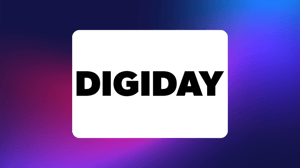Easily manage and organize your video library with a scalable solution built for streamlined control and delivery.

As companies debut AI offerings at a breakneck pace, consumer concerns grow
As commercial interest in generative AI continues to grow, companies still have to overcome consumer concerns.
According to new research from Gartner, 64% of marketers surveyed said they’re already deploying or piloting various types of AI or machine learning tools. Meanwhile, 53% of consumers think generative AI will “strongly or somewhat negatively impact society.”
IT experts are also greeting generative AI with a mix of excitement and worry. In a new survey of IT leaders conducted by Salesforce, 86% of 4,000 respondents said GenAI will have a prominent role in their organizations — up from 57% in March — but 64% share ethical concerns associated with the tech.
Despite concerns, consumers might see marketing uses of the revolutionary tech as more palatable: 38% of consumers surveyed by Gartner said they were “very comfortable or somewhat comfortable” with GenAI used in marketing while another 27% took a neutral stance.
More companies are testing new AI tools, but most are still focused on internal uses, noted Gartner analyst Nicole Greene. She said many are also still assessing their tech stacks and cleaning data to better understand its true potential, adding that others are still concerned about protecting data and IP.
“I feel like we’ve kind of been waiting for this moment when the conversation would shift away from just ChatGPT and toward productization of this,” Greene said. “There’s a huge tension there with how companies getting access are going to use this to influence consumer decision-making and if consumers are ready to receive it.”
A flood of developments
Last week, it seemed like every major tech company made news last week related to generative AI. Microsoft debuted new AI-powered enterprise tools across Bing Chat and Microsoft Co-Pilot including new ways for marketers to summarize calls, capture feedback and write follow-ups.
A day later, Salesforce debuted new generative AI tools for its own platforms, SAP announced new investments in three key GenAI startups, and Qualtrics unveiled a new platform with generative tools for enterprise management.
Apple also is rumored to be developing a framework for a competing large language model while Google is also reportedly readying to roll out new extensions to compete with ChatGPT’s plug-ins. As for OpenAI, it released more features for customizing responses based on who a user is and which answers might be most relevant.
Across the bevy of breakthroughs, perhaps the biggest news last week came from Meta, which debuted a new large language model called LLaMa 2 that is free for research and commercial use. (The giant will still require companies that have more than 700 million monthly active users to ask for special licensing from Meta to use the open-source AI model.)
Training LLaMa 2 on publicly available content and opening it for commercial use has some advertising agencies eager to experiment. One ad executive who spoke with Digiday said the LLM’s commercial availability beyond just research purposes puts it on the “short list” for use. Others pointed out that the updated LLM also comes with features that will help developers save time by not having to do more training.
“LLaMa 2’s collaboration with Microsoft makes it an industry standout, as the model is already available in Azure,” said Dor Leitman, senior vice president of product and R&D at Connatix. “This enables companies to easily integrate and train the models in-house, addressing privacy and legal concerns. It also reaffirms Microsoft and Azure as leaders in the AI cloud space.”

